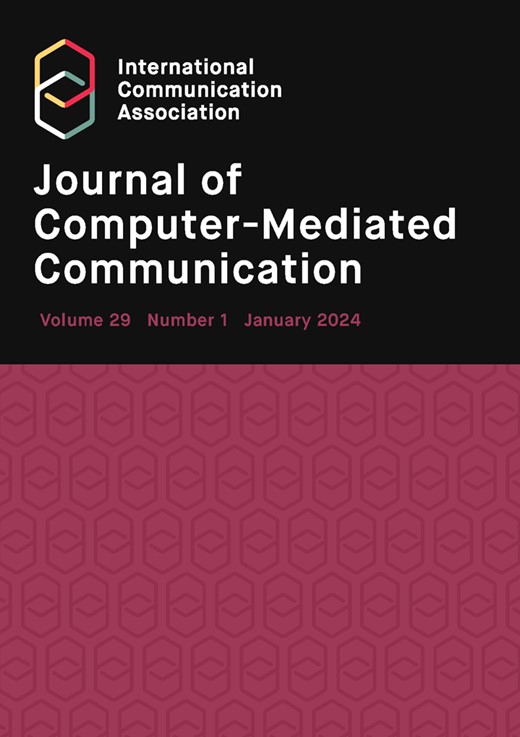有围墙的世界化:中国的防火长城如何调解城市里年轻男同性恋者的生活
IF 5.7
1区 文学
Q1 COMMUNICATION
引用次数: 0
摘要
摘要本文探讨了审查作为一种传播技术在塑造世界化经验中的作用。通过对规避中国防火长城的城市男同性恋者的采访,这篇文章研究了审查制度如何影响人们对媒体的选择、行为和社会观点。它提出了三个发现。首先,审查生产驯化的传媒生态控制与外界交流,构建“localness”和“外国人”的媒体工件。其次,审查制度创造了一个排他性的“世界性数字阶级”,根据人们的媒体实践建立了一个受欢迎的等级制度。第三,审查促进了世界化和封闭的矛盾交织,普及了一种既开放又封闭的心态——愿意跨越柏林墙,获取不同的信息——订阅对自我的地域理解。基于这些发现,本文提出了“有围墙的世界主义化”的概念来描述世界主义自我在审查环境中的脆弱性。本文章由计算机程序翻译,如有差异,请以英文原文为准。
Walled cosmopolitanization: how China’s Great Firewall mediates young urban gay men’s lives
Abstract This article explores the role of censorship as a communication technology in shaping experiences of cosmopolitanization. Drawing on interviews with urban Chinese gay men who circumvent the country’s Great Firewall, the article studies how censorship shapes people’s media choices, practices, and social outlooks. It presents three findings. First, censorship produces a domesticated media ecology characterized by controlled exchanges with the outside world, constructing the perceived “localness” and “foreignness” of media artifacts. Second, censorship creates an exclusive “cosmopolitan digital class” that establishes a hierarchy of desirability based on people’s media practices. Third, censorship promotes a paradoxical intertwining of cosmopolitanization and encapsulation, popularizing a mindset that is at once open—willing to move across the Wall and access alternative information—and closed: subscribing to territorial understandings of selfhood. Based on these findings, the article proposes the concept of “walled cosmopolitanization” to describe the vulnerability of the cosmopolitan self in censored environments.
求助全文
通过发布文献求助,成功后即可免费获取论文全文。
去求助
来源期刊
CiteScore
9.60
自引率
2.80%
发文量
26
期刊介绍:
The Journal of Computer-Mediated Communication (JCMC) has been a longstanding contributor to the field of computer-mediated communication research. Since its inception in 1995, it has been a pioneer in web-based, peer-reviewed scholarly publications. JCMC encourages interdisciplinary research, welcoming contributions from various disciplines, such as communication, business, education, political science, sociology, psychology, media studies, and information science. The journal's commitment to open access and high-quality standards has solidified its status as a reputable source for scholars exploring the dynamics of communication in the digital age.

 求助内容:
求助内容: 应助结果提醒方式:
应助结果提醒方式:


